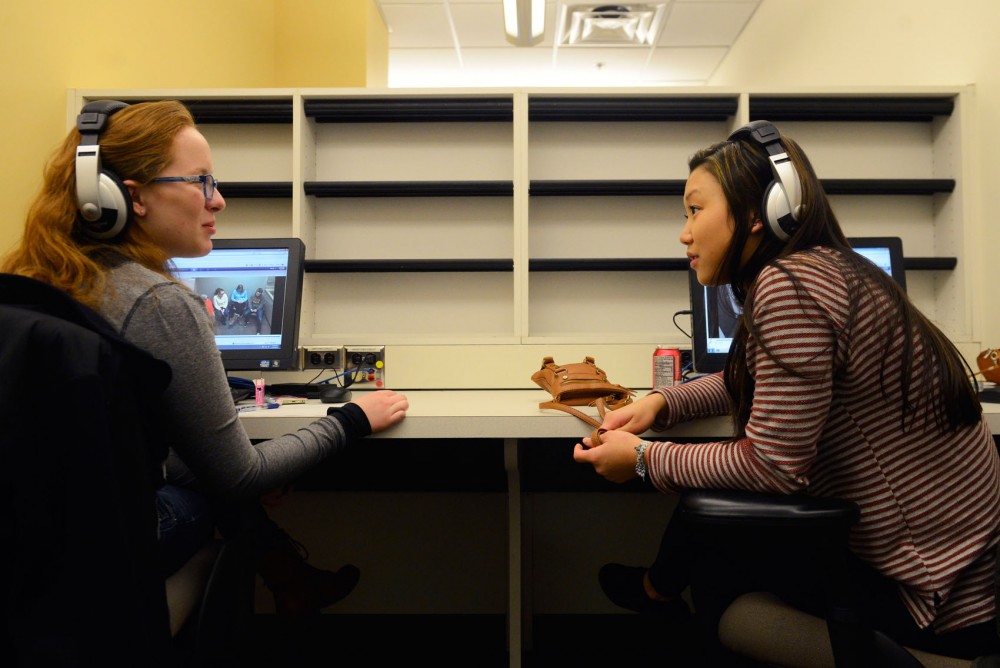A 16-year-old boy sat with his grandmother, aunt and cousin Friday, discussing the boy’s drug use.
His grandmother began crying in the camera-monitored room as she expressed her concern over his drug use, while a University of Minnesota social work graduate student looked on from across the room.
The boy and his cousin are Minnetonka High School students acting out a scenario with paid actors playing the adults. The graduate student was expected to evaluate and react to their simulation as she would in a real-world situation. The student was one of 30 in the University’s social work program who spent the last three weeks evaluating scenarios like this one.
The University partnered with the high school’s VANTAGE program to help graduate students get real-world experience in their field while teaching high school students about social work.
The program is the first of its kind for the School of Social Work, said Joseph Merighi, an associate professor in the school and the project’s principle investigator.
Students in the University’s Master of Professional Studies in Integrated Behavioral Health program are required to participate in the simulations, Merighi said.
The program is funded by a grant the University received last fall to counter a shortage of health professionals in the state’s mental health field.
“We’re really trying to build that workforce so that younger people can have access to outstanding services,” Merighi said.
After the simulations, high school students gave University students feedback about things like their body language, facial expressions and interactions with the family members.
The social work students in the fellowship completed a total of 60 simulations.
University faculty members also gave the students feedback and showed them how to improve, Merighi said.
Social work graduate student Karl Reichter said he thinks the practice was representative of real-world situations. He said the practice patients gave him more feedback than actual patients might be comfortable sharing.
“These students are very perceptive,” Reich said.
Heidi Thomas, a psychology teacher with the VANTAGE program at Minnetonka High School, said students in the program spend time in a variety of professional health care settings, like hospitals, but this was their first experience with social work.
She said simulations, like the ones they participated in Friday, prepare the students for college and future careers in health care.
“It’s important to simulate these health care experiences so you really are as effective as possible,” Thomas said.


